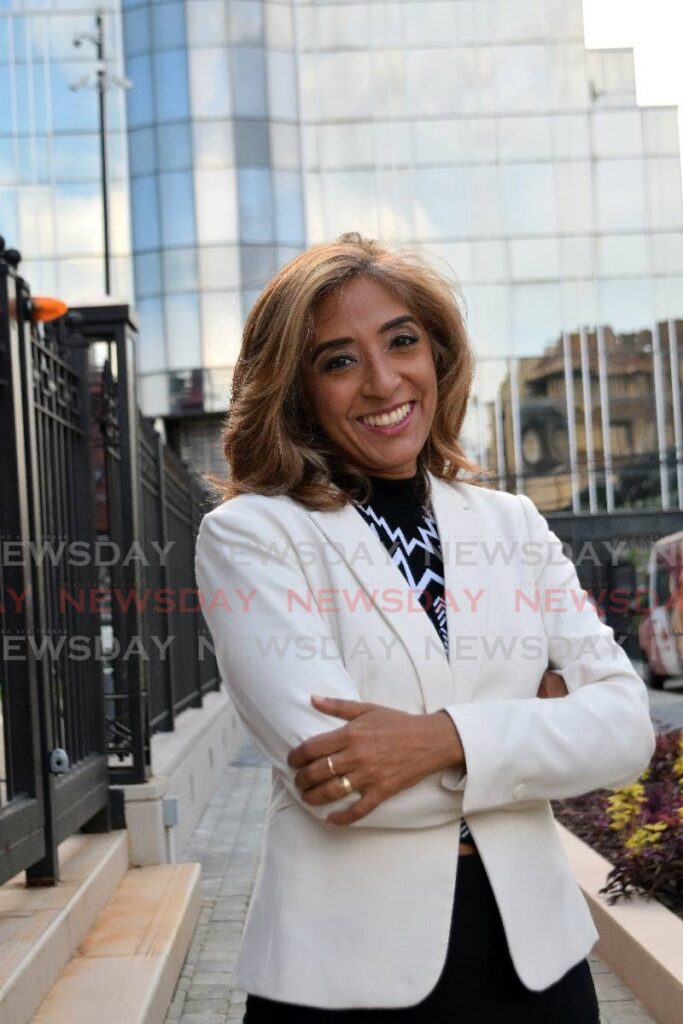The threat to the Arctic

DR GABRIELLE HOSEIN
YOU MAY have been feting and missed the January 12 newsletter from the Tricontinental: Institute for Social Research and its head, Vijay Prashad.
I had to share its contents this week. I was so struck by how little we might know about what is happening on our planet, the power holders and their power plays, and how directly we pay the costs of their geopolitical games.
Anyone paying attention to climate change knows that major glaciers have melted and are melting, raising sea levels and leading to coastal erosion and flooding. Here’s what you may not know, summarised from this newsletter, which everyone with an eye on global affairs should read.
There are eight countries on the Arctic rim – Canada, Denmark, Finland, Iceland, Norway, Russia, Sweden, and the United States. In 1996, they formed the Arctic Council to monitor environmental threats to the Arctic, including climate change and development.
Hardly true custodians of humanity and the planet’s species, these countries have instead been competing to control the 21 million square kilometres of the Arctic Circle, which is rich in minerals, metals and fossil fuels.
There’s a race to control perhaps one-fifth of the world’s undiscovered oil and gas, and other earth elements, trapped beneath the ice. Each of these countries has been establishing military bases on the Arctic Circle rim. It’s a race to exploit, not save.
There is no way they are going to prevent any melting of ice caps when trillions of dollars of wealth is below the ice. Such wealth, without doubt, will amass in the hands of the few at the expense of us all.
The planet’s people can debate temperature rise and unsustainability, but the Arctic is where it’s at. This is a real conundrum for us in the Caribbean, situated so far away and so emotionally disconnected.
Besides the Arctic Council, regulation of the Arctic also falls under the United Nations Convention on the Law of the Sea (UNCLOS). Because the Caribbean is like saltfish, the International Seabed Authority (ISA) which implements the UNCLOS is located in Jamaica. There, a commission is developing a mining code to regulate exploration and exploitation of the international seabed area.
Whereas each of these eight countries controls part of the Arctic’s continental shelves and territorial sea (12 nautical miles from the low-water mark) and is jockeying to ensure rights to an exclusive economic zone (200 nautical miles from the low-water mark), UNCLOS protects deep seabed as the "common heritage" of humanity.
Back to Jamaica. One-fifth of the commission’s members are from mining companies, and last year a slew of nations, including TT, protested against fast-tracking deep seabed mining rights. That fast-tracking was triggered by the small Pacific island country of Nauru which is in bed with a subsidiary of Canada-based and US-listed The Metals Company. Everywhere, the ocean’s deep seabed is at risk.
Speaking about the Arctic, Prashad writes, “a mining code that favours mining companies will not only increase exploitation, but also increase competition and the risk of conflict between major powers. This competition has already intensified the New Cold War between North Atlantic Treaty Organisation (NATO) states – led by the US – and countries such as China and Russia and has led to the rapid militarisation of the Arctic.”
NATO’s headlining of world news increased after Russia invaded Ukraine, though it has long been expanding reach and influence. Russia was the current chair of the Arctic Council and the other members boycotted in solidarity with Ukraine, undermining the council’s multilateralism. NATO stepped in as a decision-making authority as Canada, Denmark, Norway and the US are already members, and Finland and Sweden soon will be.
Bunji Garlin’s Position could be describing the way that NATO is flinging bumper all over. Its focus, led by the US, is to muscle China and Russia out of decision-making over the Arctic, which Prashad describes as “part of the ideological battle to justify the New Cold War.” There’s a lot of speechifying about Western shared values and international rules and co-operation, but it’s about militarism and mining.
Meanwhile, the Arctic remains key to climate change and every country should commit to its protection. Caribbean countries have negligible influence, like cockroach in fowl party, but if the majority of the world rose up together, we would have decisive voice and power, in solidarity with indigenous people of the Northern Hemisphere and our own marine ecosystems. Currently distracted by so much else, at best, we are merely watching from the margins.
Diary of a mothering worker
Entry 492
motheringworker@gmail.com


Comments
"The threat to the Arctic"